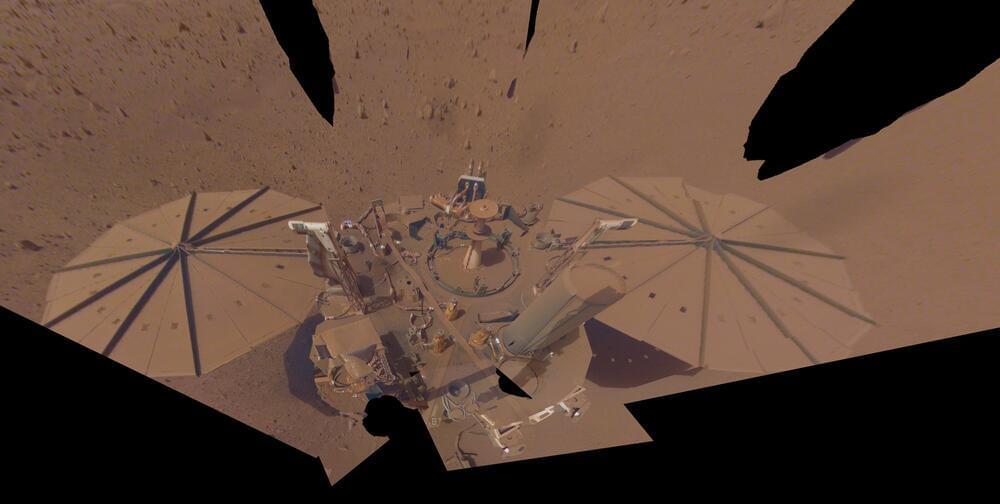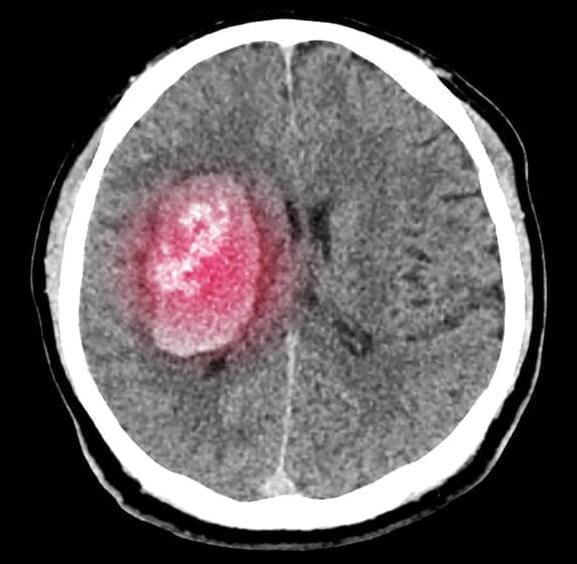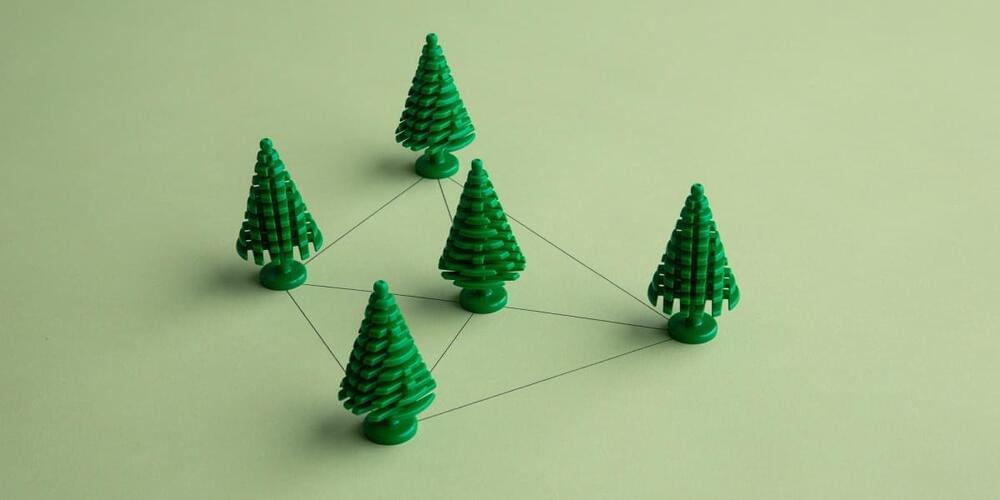The mission has concluded that the solar-powered lander has run out of energy after more than four years on the Red Planet.



Death is perhaps one of the most universally discussed topics across the board, and at least once in our lives, the vast majority of us wonder what happens during our final moments. For a long time, we haven’t had many answers, well, that is until now.
One of the most common ‘rumors’ about death is that right before our final moment, our life flashes before our eyes. And recent research may offer some interesting answers that indicate this theory isn’t far from the truth.
The research was carried out by accident, as they had intended to study the brainwaves of an 87-year-old patient with epilepsy. However, during their research, the patient ended up suffering from a fatal heart attack. During the death of the patient, their brainwaves were recorded up until the moment of death.

Copyright @ 2022 The Scripps Research Institute. All Rights Reserved. Terms of Use.
Building a wind power operation that can thrive in icy conditions requires a keen understanding of the underlying physics.
Winter is supposed to be the best season for wind power — the winds are more potent, and since air density increases as the temperature drops, more force is pushing on the blades. But winter also comes with a problem: freezing weather.
Frequent severe icing can cut a wind farm’s annual energy production by over 20 percent, costing the industry hundreds of millions.
Piola666/iStock.
Even light icing can produce enough surface roughness on wind turbine blades to reduce their aerodynamic efficiency, which reduces the amount of power they can produce, as Texas experienced in February.
The Expanse is one of the seminal sci-fi shows of the past decade. Set centuries in the future when humans have colonized the solar system, it’s been called one of the most scientifically accurate sci-fi shows of all time. But just how much does this hold up to scrutiny?
Join this channel to get access to perks:
https://www.youtube.com/channel/UCF5F2zbc6NhJVyEiZGNyePQ/join.
Watch my video about the science of Star Trek’s phasers: https://www.youtube.com/watch?v=i0unFPbKrks.
Watch my video about the science of Star Wars’ lightsabers: https://www.youtube.com/watch?v=O5a7lHh9EpI
Written, directed, & edited by OrangeRiver.
Cinematography by PhobiaSoft https://www.youtube.com/phobiasoft.
Additional photography by OrangeRiver.
- Music in this video
Leading Canada’s Bio-Safety & Security R&D — Dr. Loren Matheson PhD, Defence Research and Development Canada, Department of National Defence.
Dr. Loren Matheson, Ph.D. is a Portfolio Manager at the Center For Security Science, at Defence Research and Development Canada (DRDC — https://www.canada.ca/en/defence-research-development.html), which is a special operating agency of the Department of National Defence, whose purpose is to provide the Canadian Armed Forces, other government departments, and public safety and national security communities with knowledge and technology.
With a focus on the chemical and biological sciences at DRDC, Dr. Matheson develops and leads safety and security R&D projects with government partners, industry and academia. In addition, she spearheaded an effort to establish a virtual symposium series, developed communications products to explain their program to national and international partners, and helped established a science communication position.
Dr. Matheson previously served as both a senior science advisor within the Office of the Chief Science Operating Officer, and National Manager, Plant Health Research and Strategies, at the Canadian Food Inspection Agency.
After 10 years consulting as a grants facilitator in clinical research, Dr. Matheson moved to the public service to pursue interests in science policy and security science.


Mayo Clinic researchers found a noncellular substance suggested improvement in restoring muscle function and bladder control in preclinical models. The teams of Atta Behfar, M.D., Ph.D. and Emanuel Trabuco, M.D., led this research in a collaboration between Mayo Clinic Departments of Cardiovascular Medicine and Obstetrics and Gynecology. The paper is published in NPJ Regenerative Medicine.
“Surgical treatment for stress urinary incontinence, a condition afflicting 25 million women, has significantly declined over concerns about negative side effects,” says Dr. Trabuco. “This has led many women to delay therapy and suffer needlessly. We hope to develop a minimally invasive, noncellular, exosome-based approach to muscle regeneration for urinary incontinence that not only targets the underlying cause of the condition but also avoids the problem with invasive surgical options presently available.”
The research team used regenerative purified exosome product, known as PEP, derived from platelets to deliver messages into the cells of preclinical models. Exosomes are extracellular vesicles that are like a delivery service moving cargo from one cell to another, with instructions for targeting exact tissues that need repair. The study suggests that the use of purified exosome product alleviates stress urinary incontinence from musculoskeletal breakdown in animals. The team did not detect any infection or off-target toxicity with application of PEP.

Researchers at Japan’s National Institute for Materials Science (NIMS) have developed a device capable of taking hundreds of times more electrochemical measurements than conventional devices. By analyzing the device’s large amounts of data, the team has identified molecular mechanisms that enable electrogenic bacteria to efficiently generate electricity even when subjected to a wide range of electrode potentials.
This technique can also be used to analyze materials interacting with microorganisms (e.g., biodegradable plastics), potentially facilitating efforts to discover innovative microbial degradable materials.
The work was published in the journal Patterns in October, 2022.
Many people think about science in a fairly simplistic way: collect evidence, formulate a theory, test the theory. By this method, it is claimed, science can achieve objective, rational knowledge about the workings of reality. In this presentation I will question the validity of this understanding of science. I will consider some of the key controversies in philosophy of science, including the problem of induction, the theory-ladenness of observation, the nature of scientific explanation, theory choice, and scientific realism, giving an overview of some of the main questions and arguments from major thinkers like Popper, Quine, Kuhn, Hempel, and Feyerabend. I will argue that philosophy of science paints a much richer and messier picture of the relationship between science and truth than many people commonly imagine, and that a familiarity with the key issues in the philosophy of science is vital for a proper understanding of the power and limits of scientific thinking.
Slides to the presentation available here: http://www.slideshare.net/adam_ford/the-shaky-foundations-of…ames-fodor.
Video / Slides / Abstract: https://web.archive.org/web/20140806044711/http://2014.scifu…mes-fodor/
Playlist of talks: https://www.youtube.com/playlist?list=PL-7qI6NZpO3sQrI2S8nmhVKYcAFmm2UTh.
Program: https://web.archive.org/web/20160924002311/http://2014.scifuture.org/program/
Recorded at the Philosophy of Science conference in Melbourne 2014: https://web.archive.org/web/20160924002311/http://2014.scifuture.org.